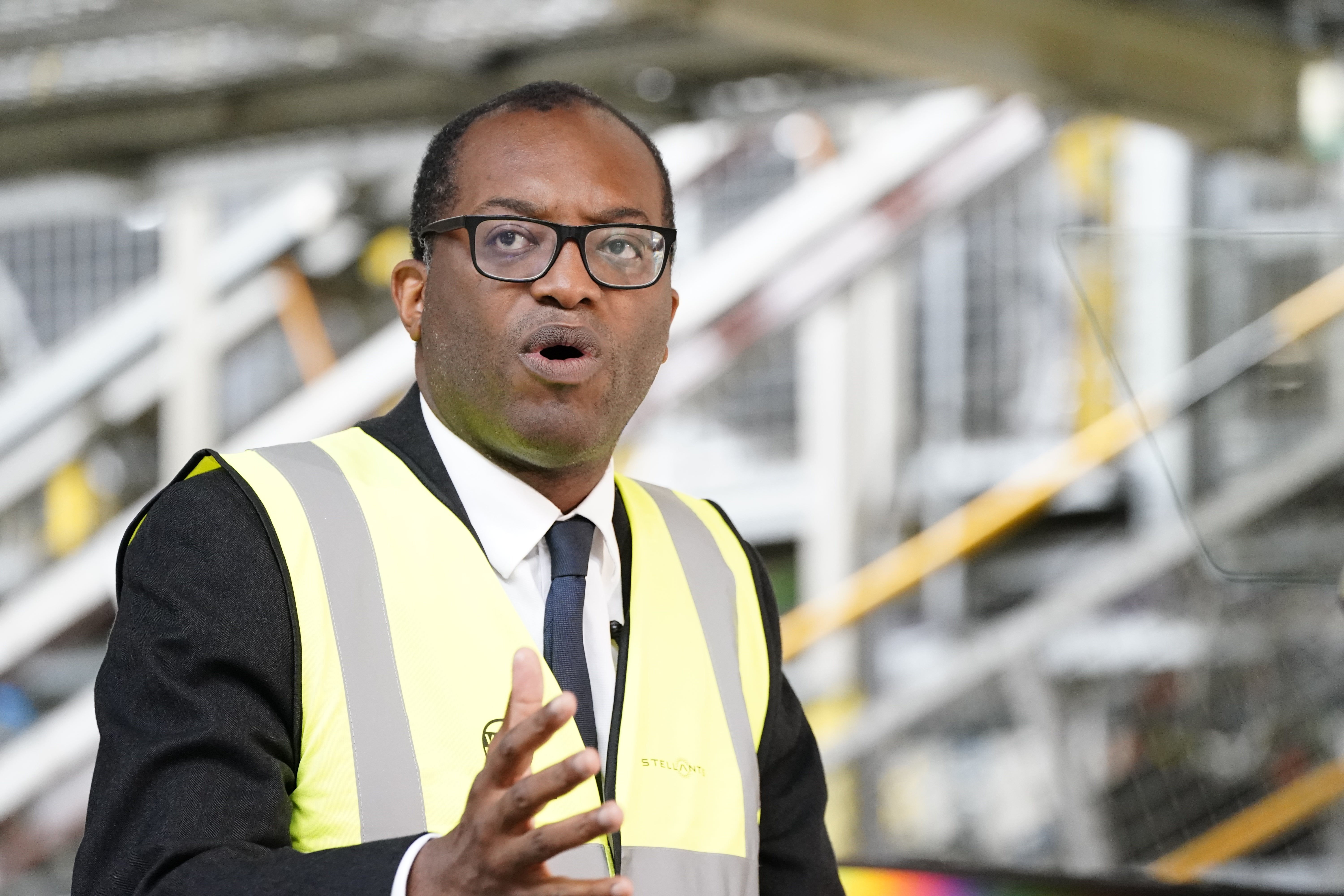Business secretary met oil industry executives ‘to encourage drilling’ days after Cop26
‘We make no apology for meeting major energy suppliers’, says government spokesperson

Your support helps us to tell the story
From reproductive rights to climate change to Big Tech, The Independent is on the ground when the story is developing. Whether it's investigating the financials of Elon Musk's pro-Trump PAC or producing our latest documentary, 'The A Word', which shines a light on the American women fighting for reproductive rights, we know how important it is to parse out the facts from the messaging.
At such a critical moment in US history, we need reporters on the ground. Your donation allows us to keep sending journalists to speak to both sides of the story.
The Independent is trusted by Americans across the entire political spectrum. And unlike many other quality news outlets, we choose not to lock Americans out of our reporting and analysis with paywalls. We believe quality journalism should be available to everyone, paid for by those who can afford it.
Your support makes all the difference.The government has said it will "make no apology for meeting major energy suppliers", after it emerged the business secretary Kwasi Kwarteng attended a private dinner with oil executives days after the Cop26 climate summit.
According to a report in The Times the purpose of the meeting was to encourage fossil fuel companies to keep drilling for gas and oil in the North Sea.
In a statement to The Independent the Department for Business, Energy and Industrial Strategy (BEIS), confirmed such a meeting took place, and said abandoning activity in the North Sea would put energy security and jobs at risk.
Three days after the conference in Glasgow ended, Mr Kwarteng dined with senior executives from companies including Shell and BP in a "charm offensive" to reassure them of continuing British government support for fossil fuels, The Times’ report said.
The meeting suggests that while publicly pledging at the Cop26 summit to move away from dependence on fossil fuels and encouraging other countries to do the same, behind closed doors the government has sought to do the opposite.
In the statement, BEIS suggested the current energy crisis, which is expected to push household bills up significantly in 2022, was a key reason for meeting fossil fuel company executives, despite Mr Kwarteng previously describing fossil fuels as a "diminishing, highly volatile resource".
The spokesperson said: “We make no apology for meeting major energy suppliers during a period of high global gas prices. While we are working hard to drive down demand for fossil fuels, there will be ongoing demand for oil and gas as the UK transitions to low carbon alternatives, as recognised by the independent Climate Change Committee."
The statement added: "Abandoning North Sea oil and gas overnight would put energy security, British jobs and industries at risk – and leave the UK more reliant on foreign imports.”
An influential report from the world’s energy watchdog released in May said there can be no further fossil fuel expansion anywhere on Earth if global climate targets are to be met, and at Cop26, the final text called for “accelerating the phaseout of unabated coal power and of inefficient subsidies for fossil fuels”.
During the summit the UK government also failed to join an international alliance aiming to end new oil and gas projects, leaving a small group of countries led by Costa Rica and Denmark, and including France, Greenland, Ireland and Sweden to forge a path away from fossil fuels.
Meanwhile, the UK government was under pressure to stop plans for new drilling activity at the Cambo oil field in the North Sea, and to explain how a new deep coal mine planned for Cumbria would also fit into its plans to hit net zero emissions by 2050.
According to The Times, the dinner with Mr Kwarteng and Tim Eggar, the chairman of the Oil and Gas Authority, took place in London on 16 November, just three days after the signing of the Glasgow climate pact which aims to keep in reach the goal of limiting global warming to 1.5C.
But despite the government’s wooing of the firms, there remains uncertainty over the UK’s commitment to fossil fuel expansion, as well as Labour in England and Wales, and the SNP in Scotland voicing their increasingly hostile attitude to fossil fuels, the Tories are also sending mixed messages.
Not least Mr Kwartang himself, who wrote in The Telegraph in October: “Don’t believe anyone who tells you the answer to a global gas crisis is simply drilling for more fossil fuels. The whole world is racing to move away from this diminishing, highly volatile resource.”
The meeting does not appear to have been enough to stop Shell from walking away from the Cambo oil field. On 2 December the company announced it was pulling out of the controversial project.
At the time, a spokesperson for Shell said: “After comprehensive screening of the proposed Cambo development, we have concluded the economic case for investment in this project is not strong enough at this time, as well as having the potential for delays.”
Join our commenting forum
Join thought-provoking conversations, follow other Independent readers and see their replies
Comments